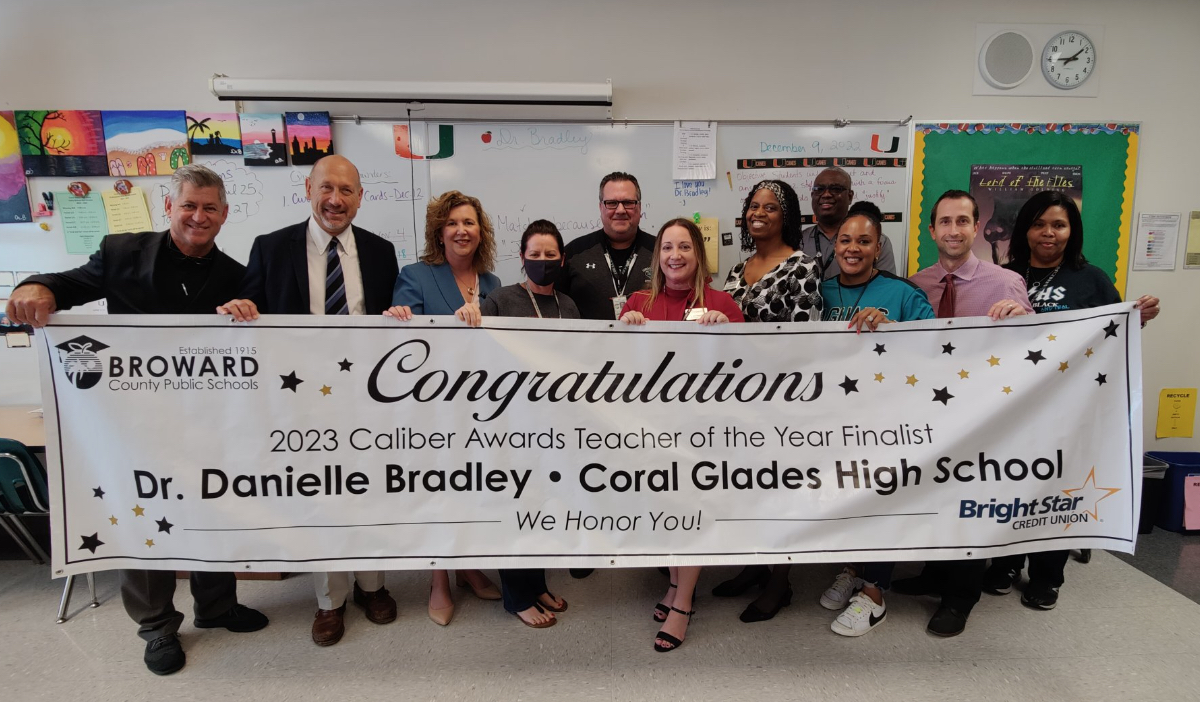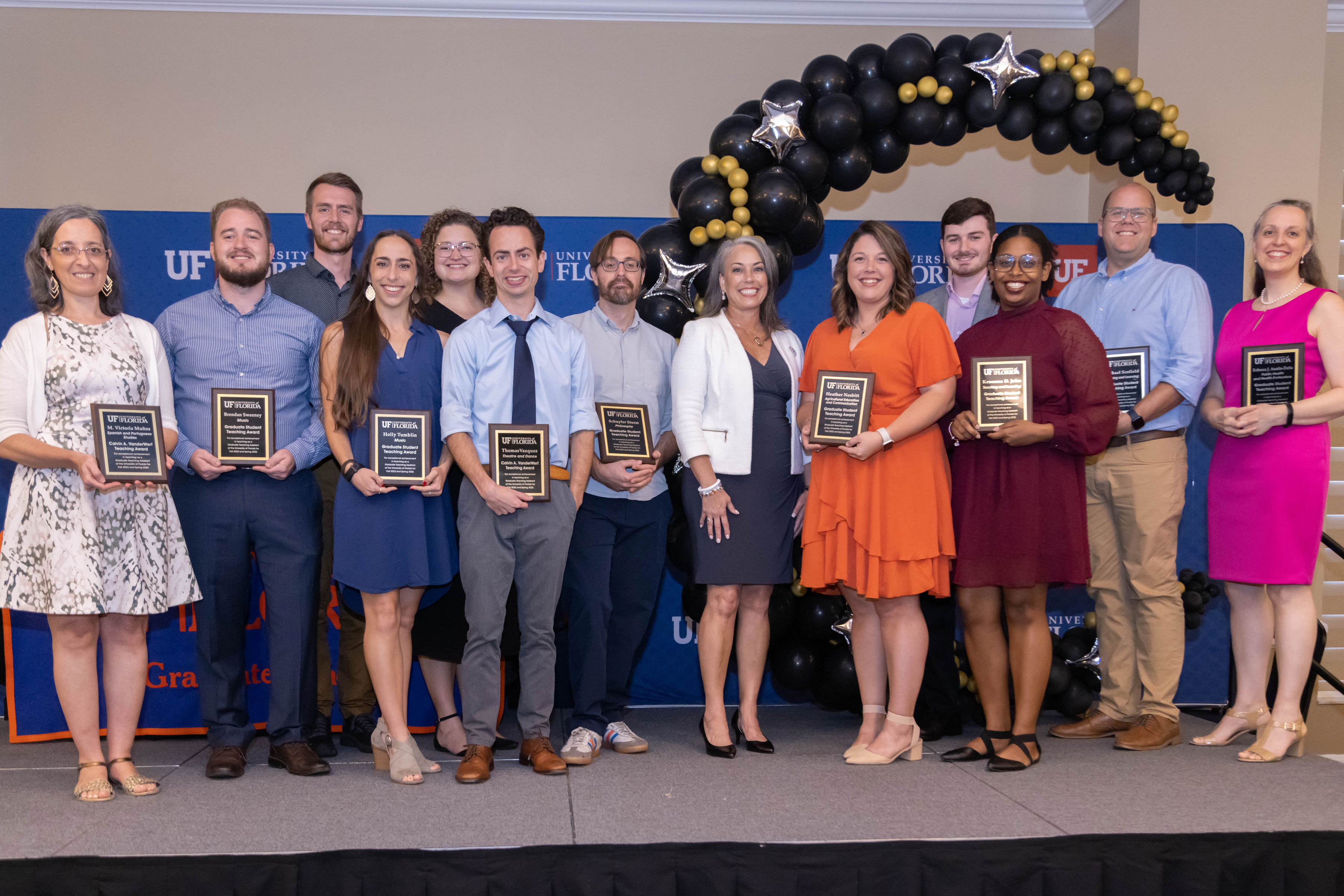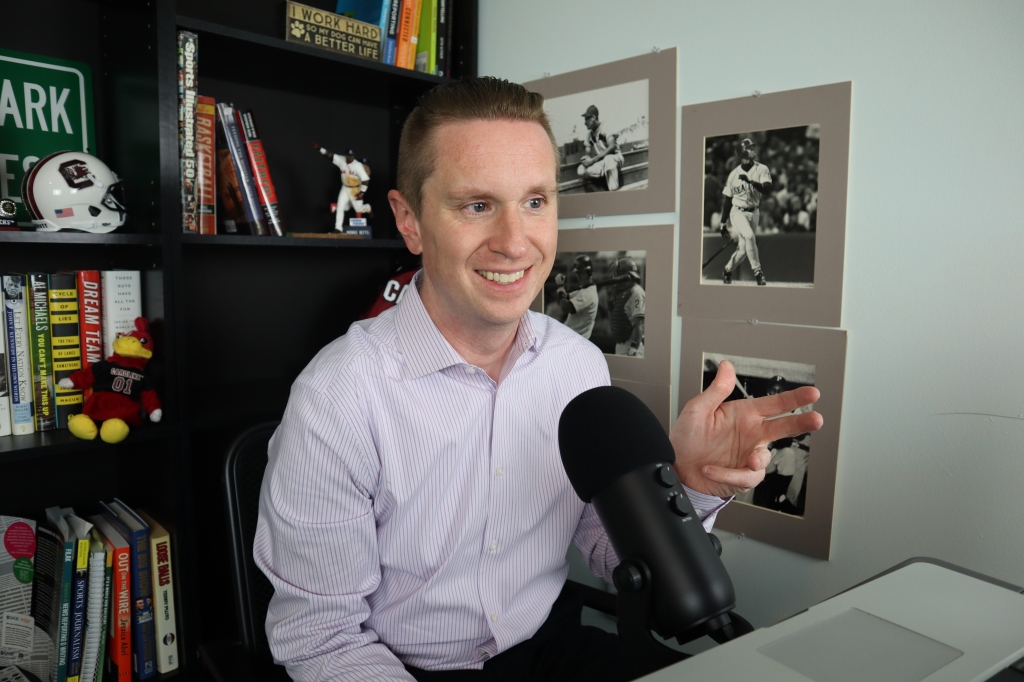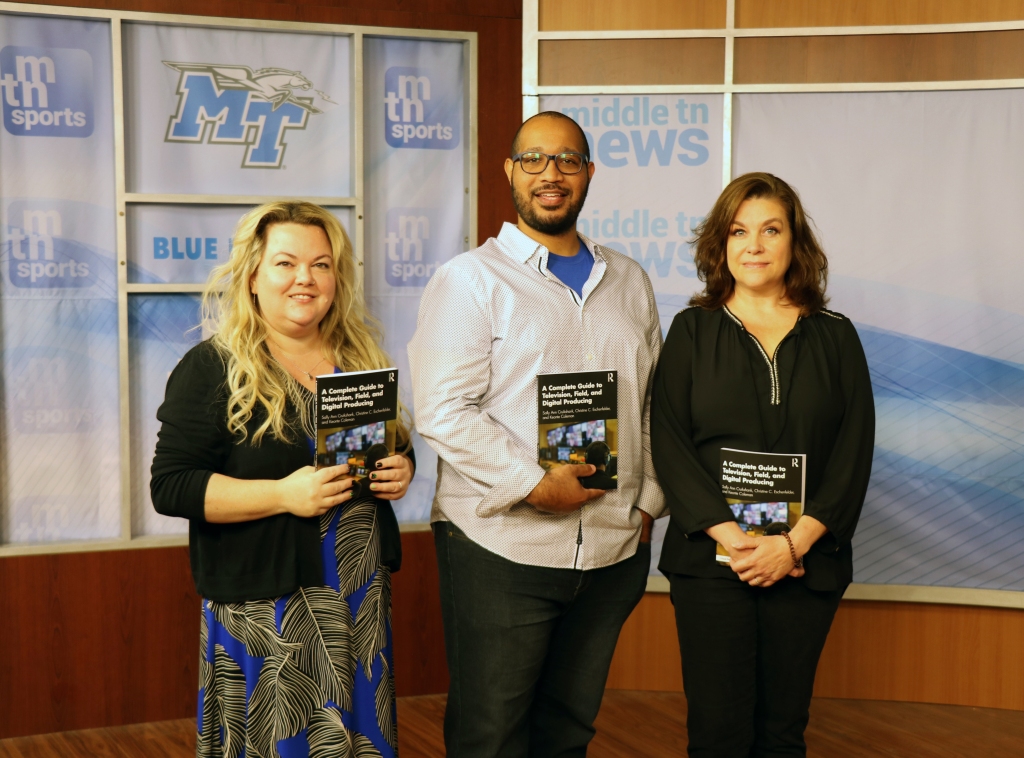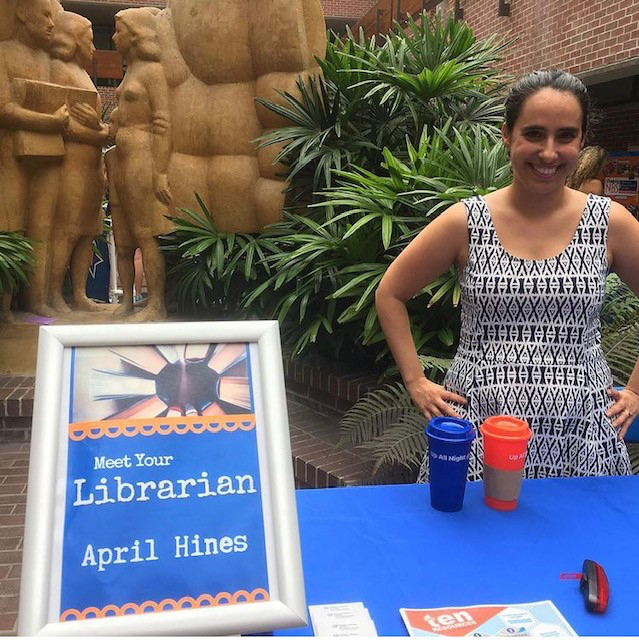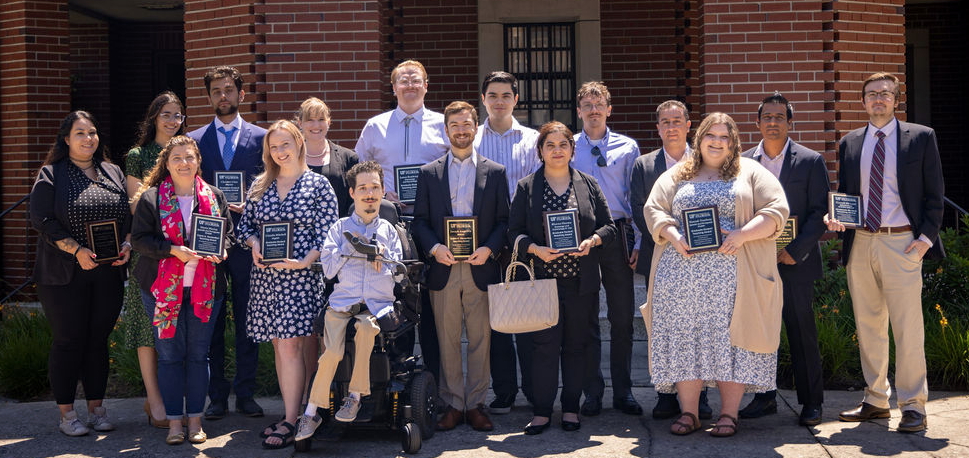
Congratulations to the University of Florida Graduate Student Teaching Award winners for 2023-2024.
Graduate student teachers were nominated during fall and spring semesters by their departments or colleges. The nominees’ teaching and their teaching portfolios were evaluated by the Graduate Student Teaching Awards Committee.
The top 20 students were selected for the award and were recognized at the Graduate Student Awards Ceremony.
- Faith Baringer (Art and Art History)
- James Boothroyd (Entomology and Nematology)
- Nader Dagher (Public Relations)
- Matthew Dallas (Mathematics)
- Sam Dillon (Physics)
- Garrett Ellward (Microbiology and Cell Science)
- Mohammad Hasan (Microbiology and Cell Science)
- Christos Litos (Physics)
- Lillian Martinez (English)
- Shelby Mikkelson (Sociology and Criminology & Law)
- Claudia Mitchell (English)
- Tiffany Pennamon (English)
- Loida Rosado Del Rio (Physics)
- Bhavna Sharma (Sociology and Criminology & Law)
- William Sims (Computer and Information Science and Engineering)
- Frank Solis (Classics)
- Alina Sunoo (Theatre and Dance)
- Shanna Thompson (Music)
- Hannah Treadway (Spanish and Portuguese Studies)
- Ivonne Zelaya (Languages, Literatures, and Cultures)
Calvin A. VanderWerf Award Winners
- Joseph Angelillo (History)
- María Mecías (Spanish and Portuguese Studies)
The members of the Graduate Student Awards Selection Committee for 2023-2024 are: Lynn Sollenberger (Chair), Sharon DiFino, Julie Dodd, Ifigeneia Giannadaki, Paula Golombek, Valeria Kleiman, Sujata Krishna, Linda Lombardino, Jon Reiskind, Henri Van Rinsvelt, Grady Roberts and Bradley Walters. Lorna Dishman, executive assistant in the Graduate School, provides administrative support for the committee.
I’m honored to serve on the committee and have the opportunity to recognize outstanding graduate student teachers. In our committee meetings, we discuss the best teaching practices and innovative class design that we’ve observed.
Thanks to Dean Nicole Stedman and the UF Graduate School for their support of excellence in teaching for graduate students. The award ceremony was part of UF’s Graduate Student Appreciation Week, held each year during the first week of April.

